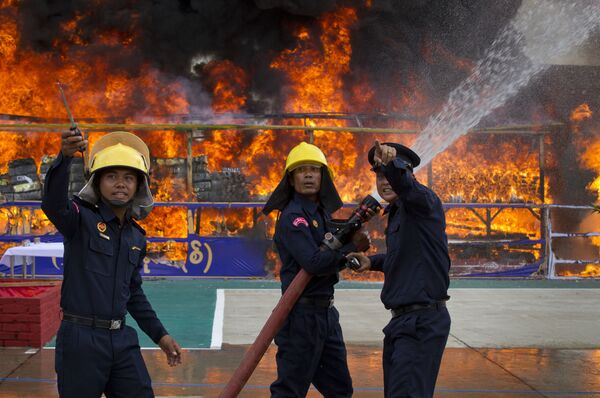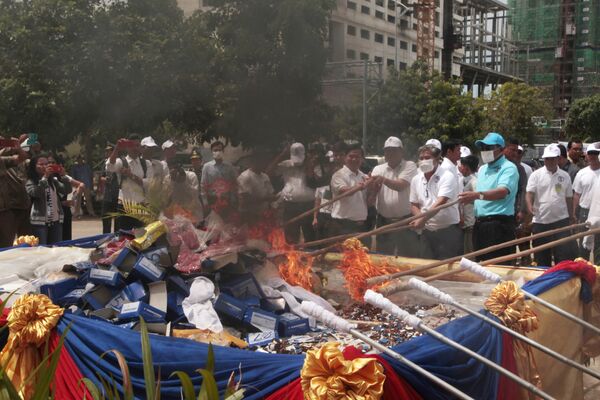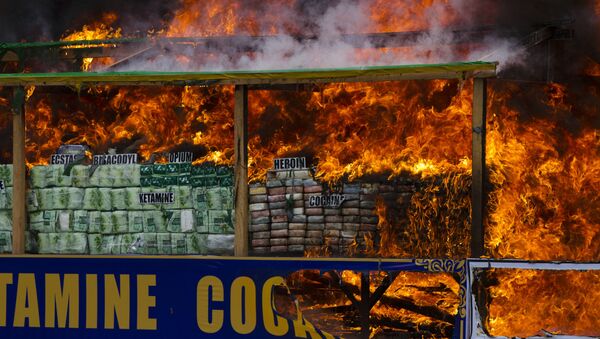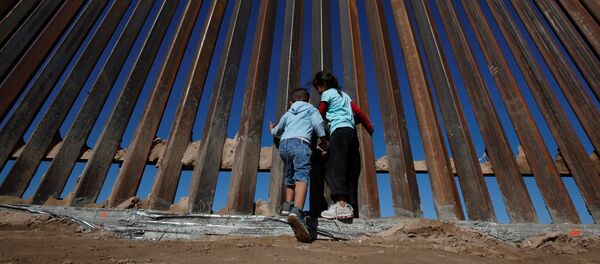In particular, Thailand burned some $589 million worth of drugs, including almost eight tons of caffeine-laced methamphetamine pills, known as "yaba", and more than one ton of crystal methamphetamine.
"Currently, we are able to take down a lot of networks, including… transnational networks bringing drugs into Thailand… to be shipped to Malaysia and other countries," the secretary-general of Thailand's anti-drug agency, Sirinya Sitthichai, told Reuters.
Myanmar has held three separate ceremonies, in which a total of $385 million worth of drugs were incinerated, including opium, heroin, cocaine and methamphetamine.
"It's the biggest burning of seized drugs in (Myanmar's) history," a senior police officer from the capital, Naypyidaw, told reporters.

Most of the confiscated drugs reportedly came from Shan State, where opium cultivation is a major source of income for many people. About one in 10 households in Shan State is involved in cultivating poppies in order to earn money "for food and basic essentials," a survey by the UN Office on Drugs and Crime says.
In Cambodia, officials burned 130 kilograms of drugs estimated to be worth some $4 million.
"The burned drugs, including heroin, crystal methamphetamine, methamphetamine pills, ketamine and ecstasy, were seized from criminals in late 2016 and early 2017," said the secretary-general of the country's national drug combating authority, Meas Vyrith, according to Xinhua.

According to the Telegraph, the three countries used the ceremonies to display their commitment to fighting the spread of the illegal substances. However, the police says this is only the tip of the iceberg, as the production of the drugs actually only grows, and keeps growing since 2006. Despite the Asian cartels traditionally aim at foreign buyer, they have started targeting domestic market recently, the police say. Even military officers and Buddhist monks were among the arrested, the Telegraph reports.



